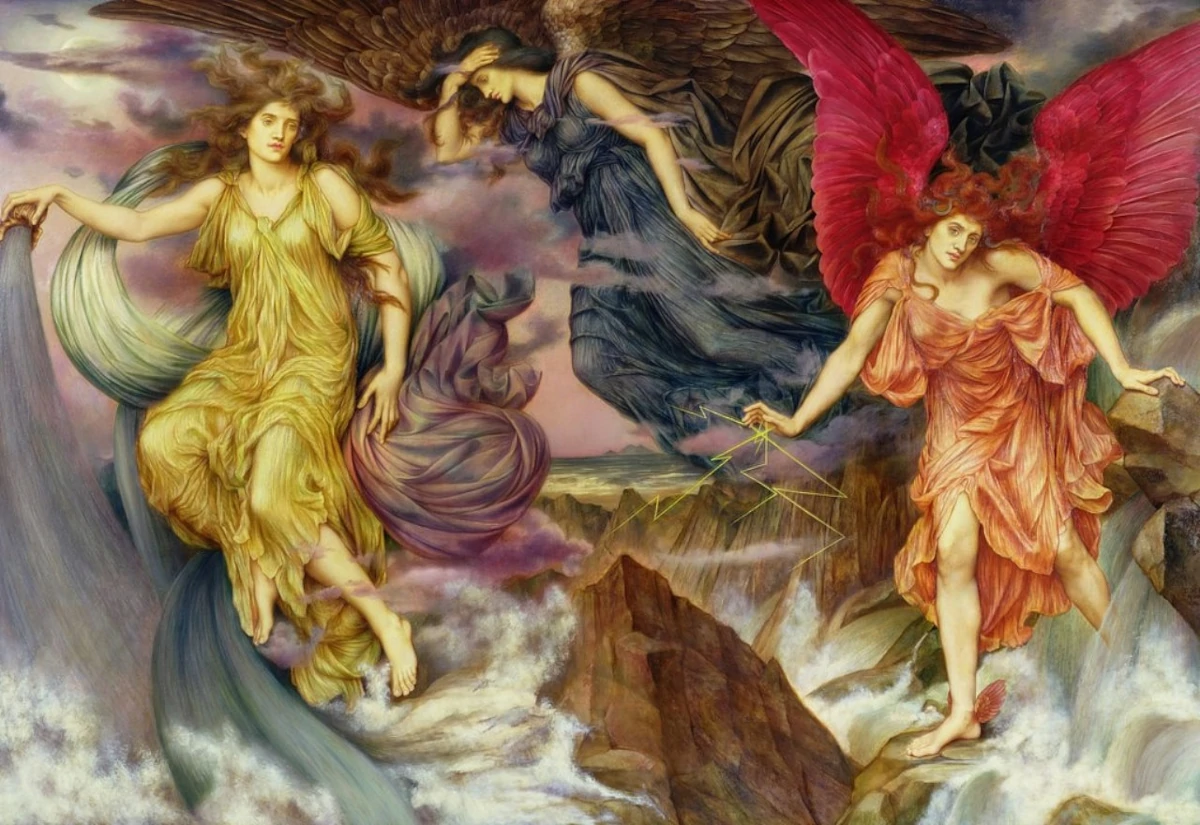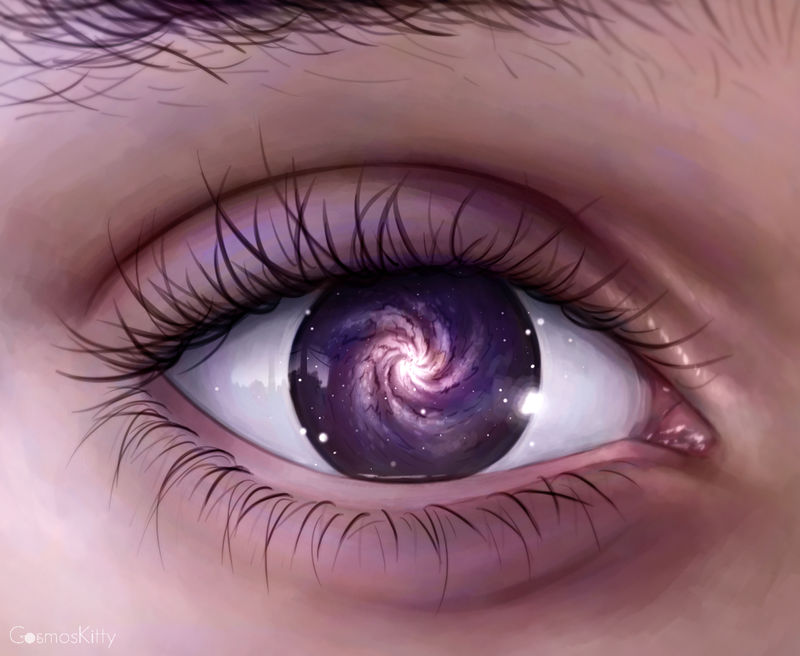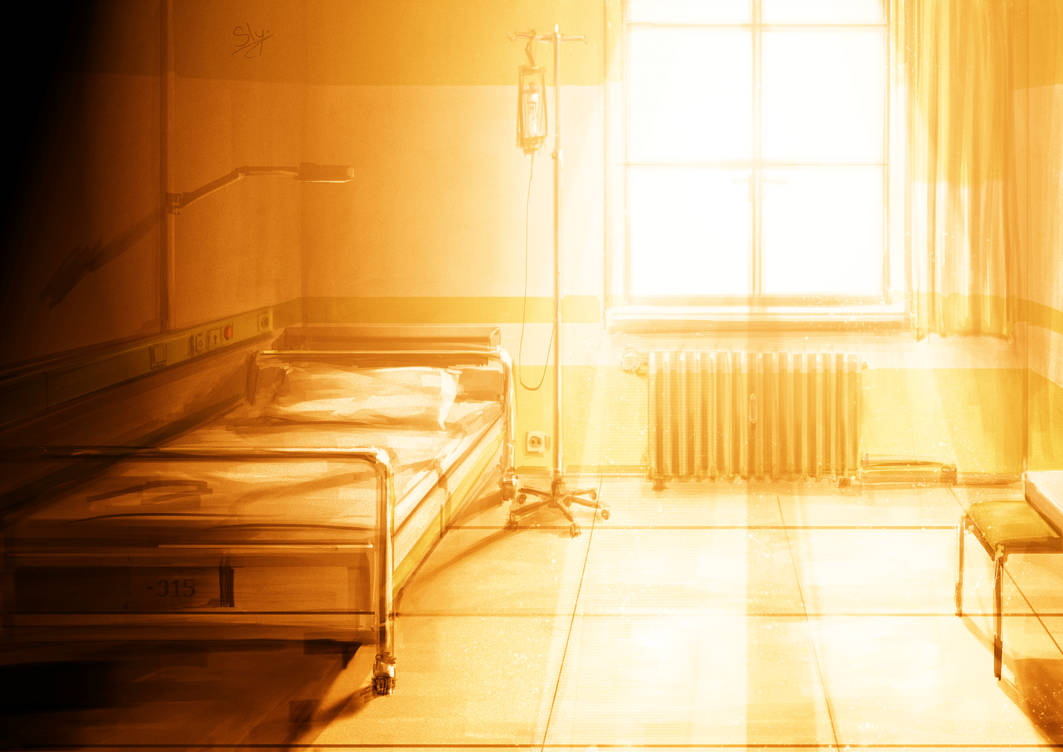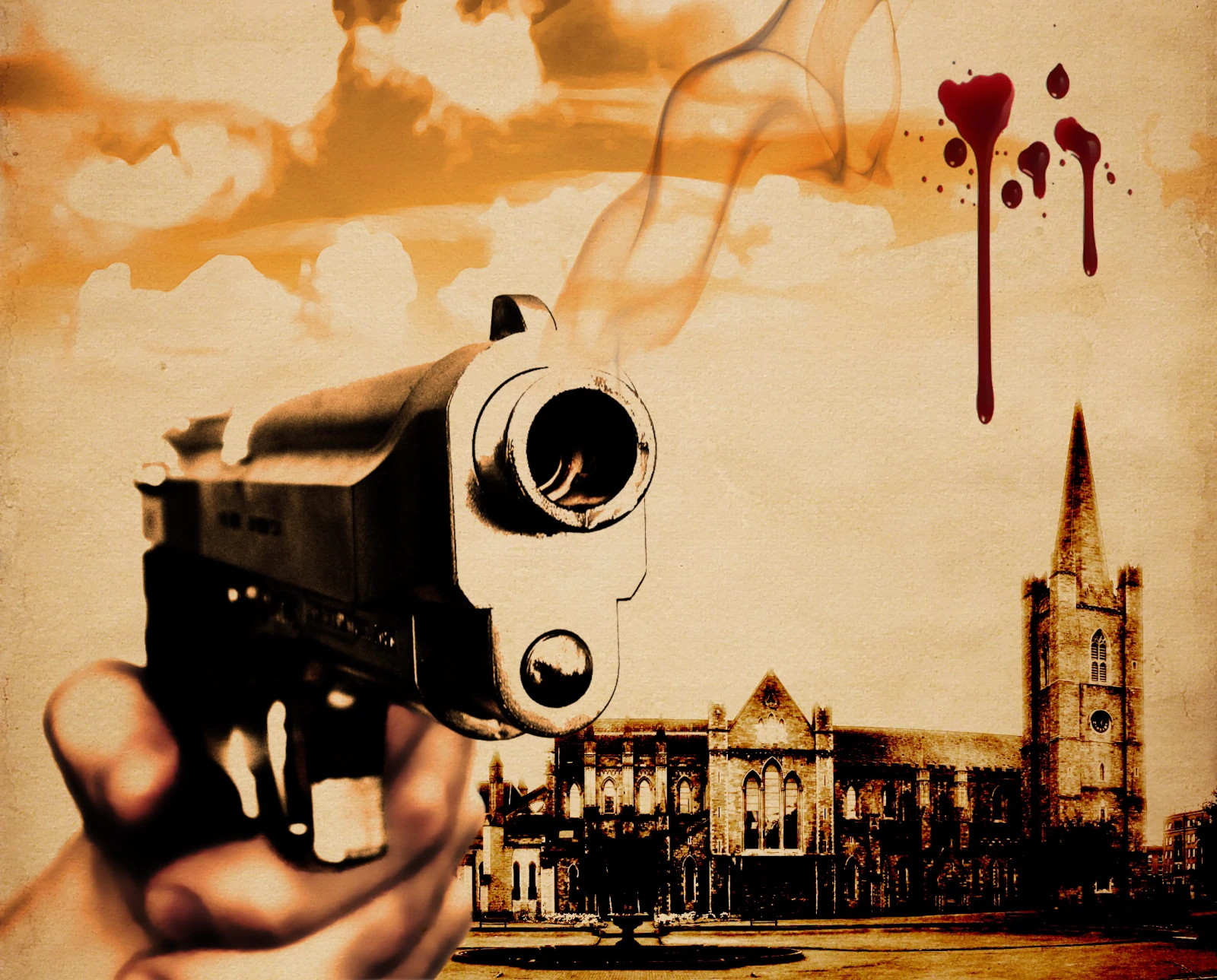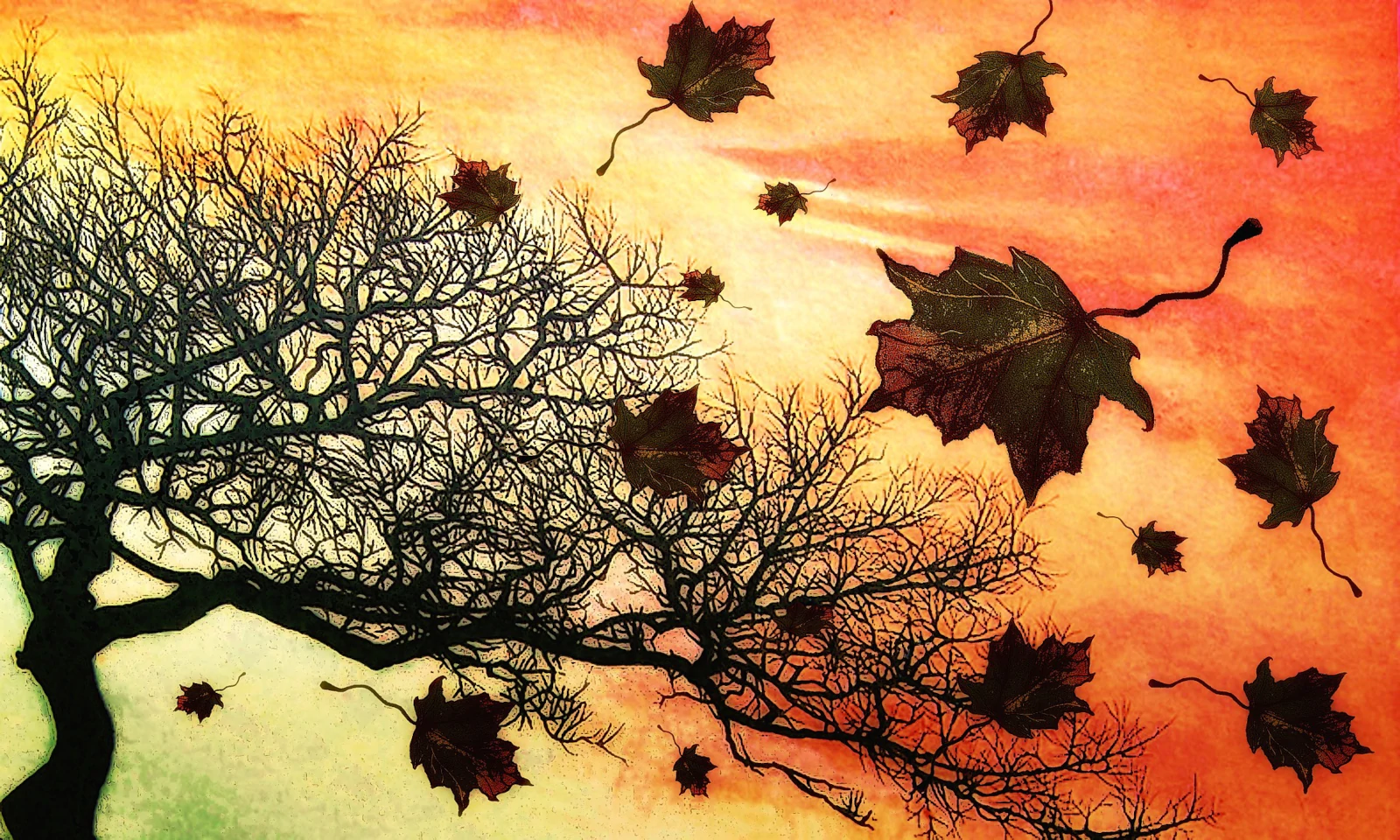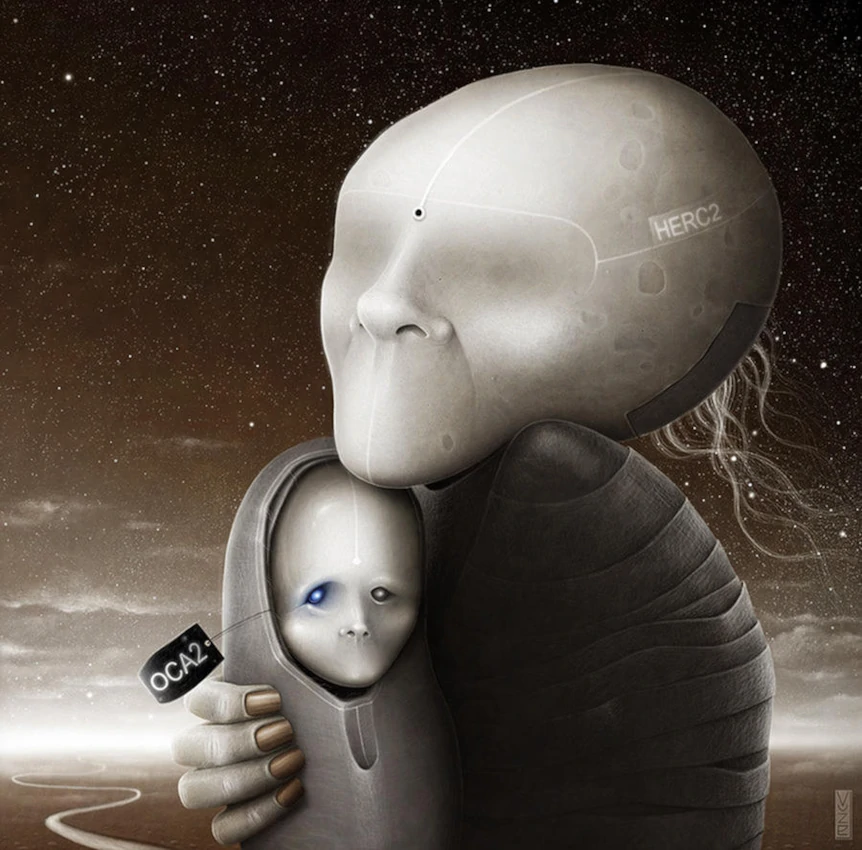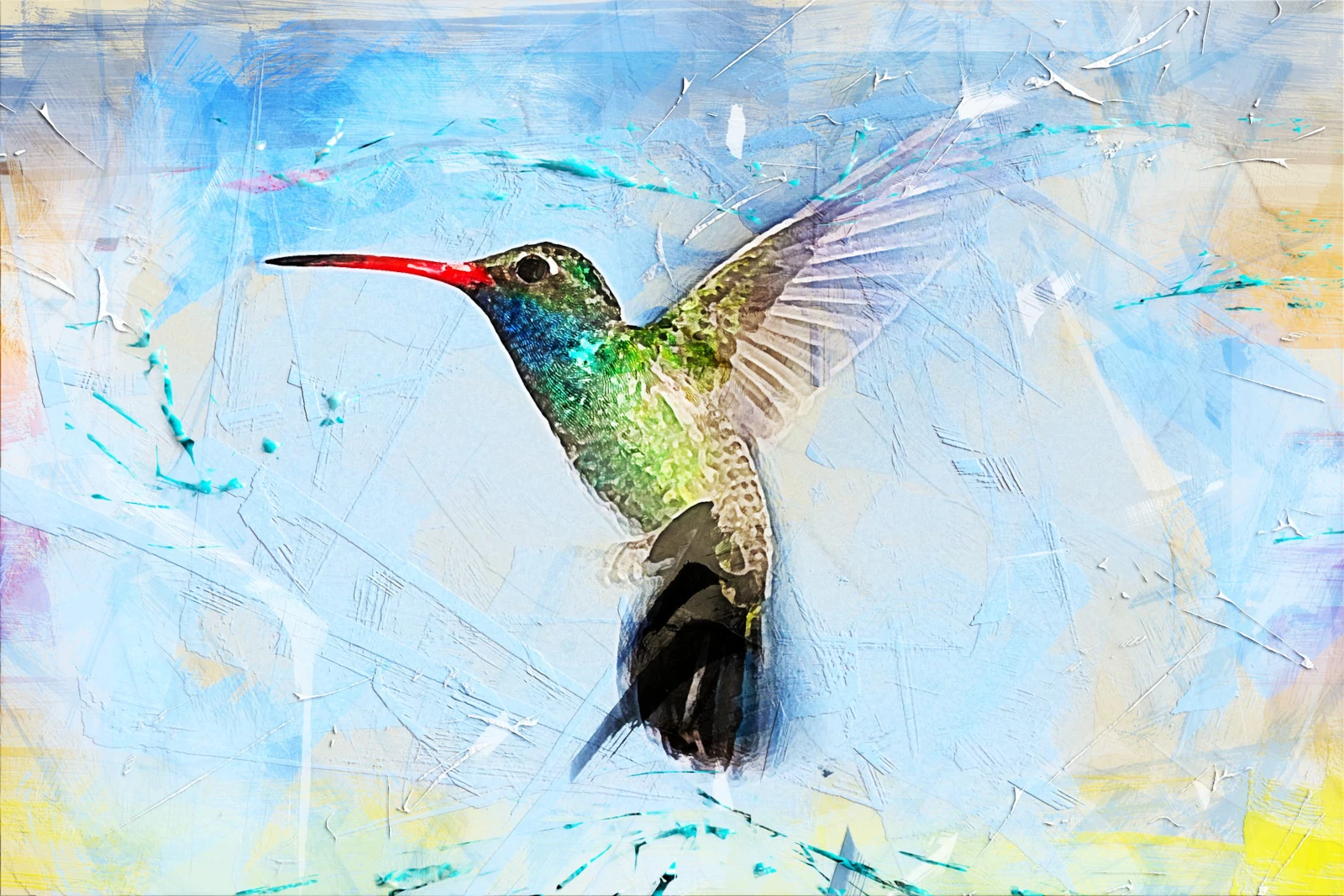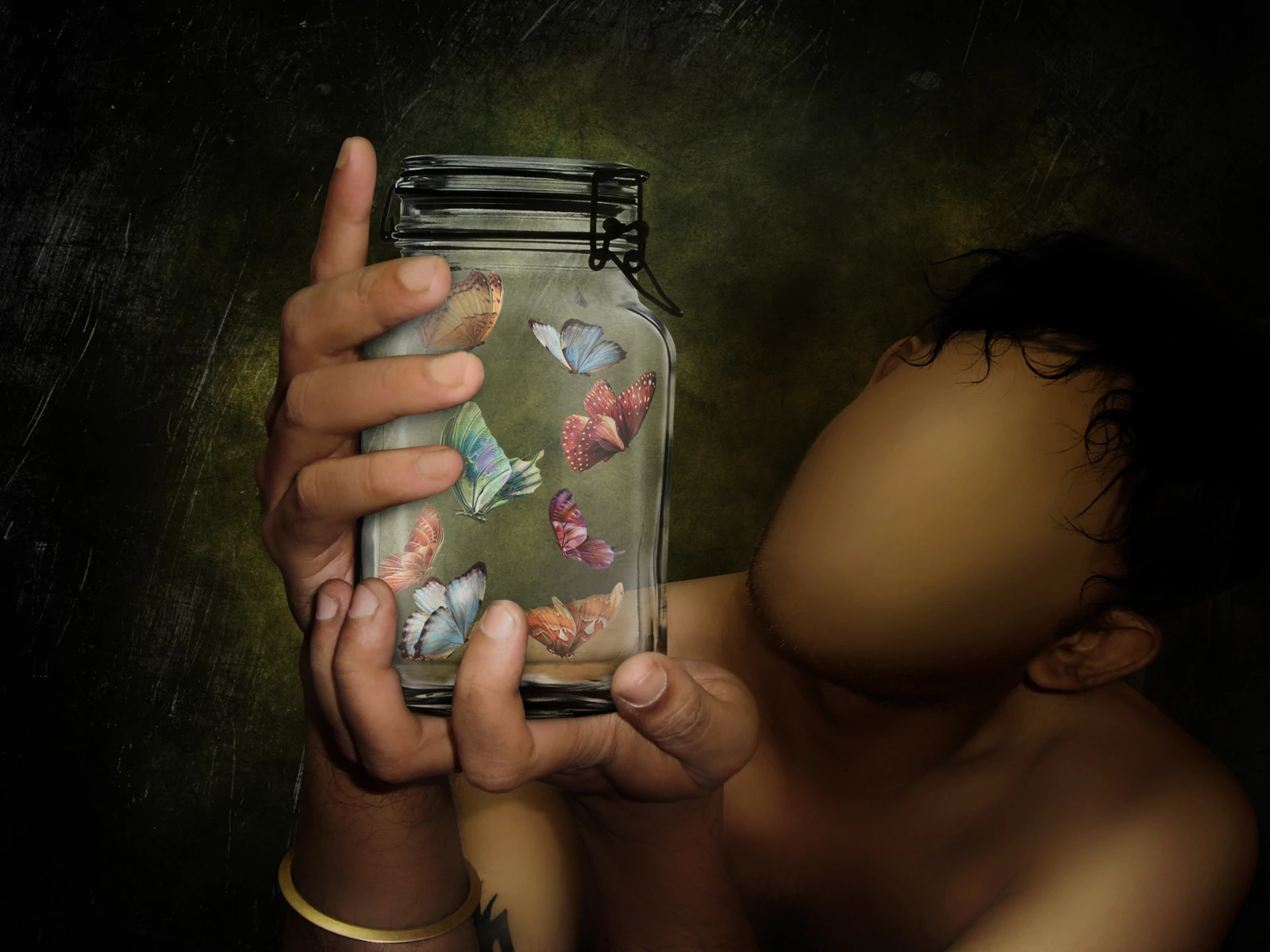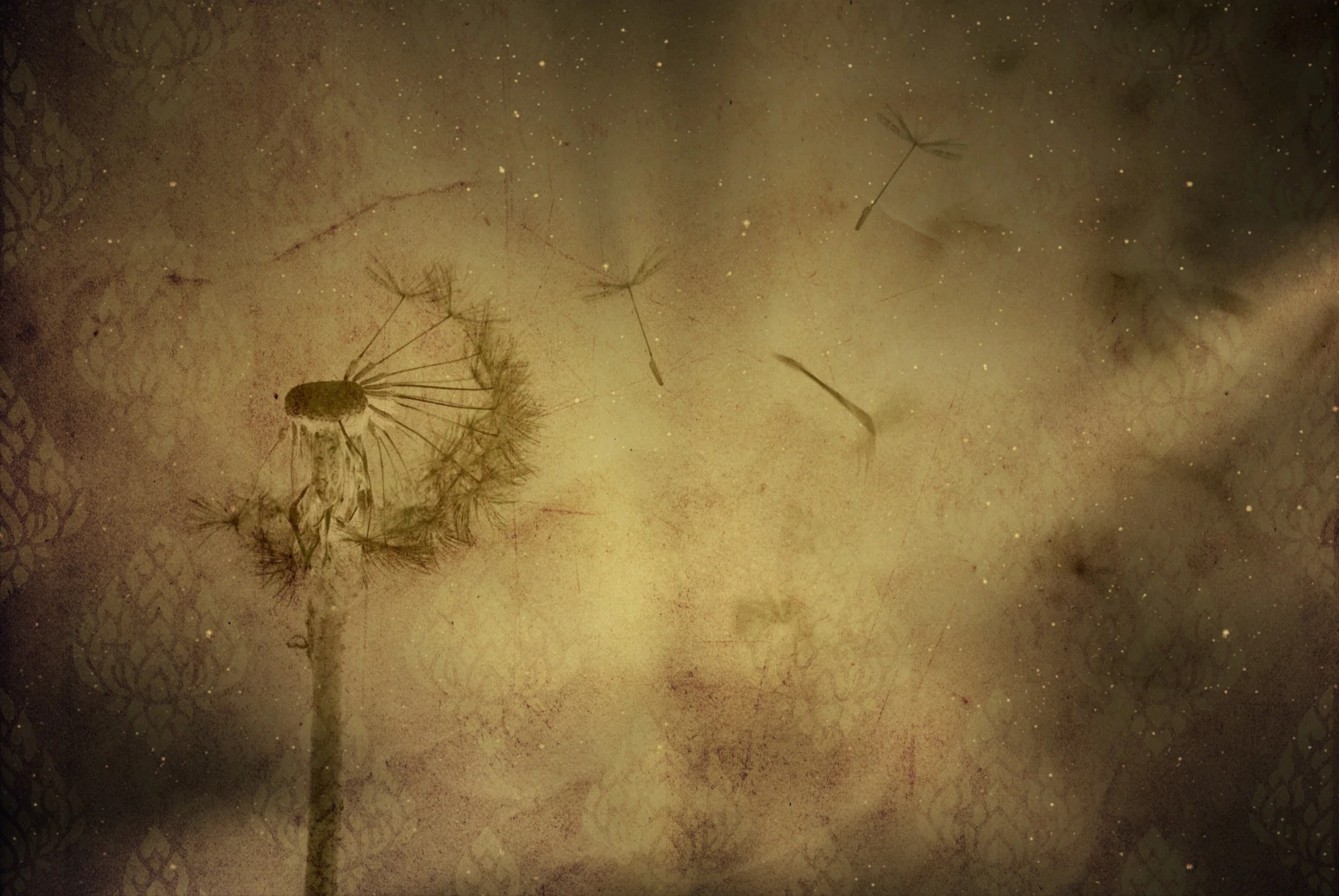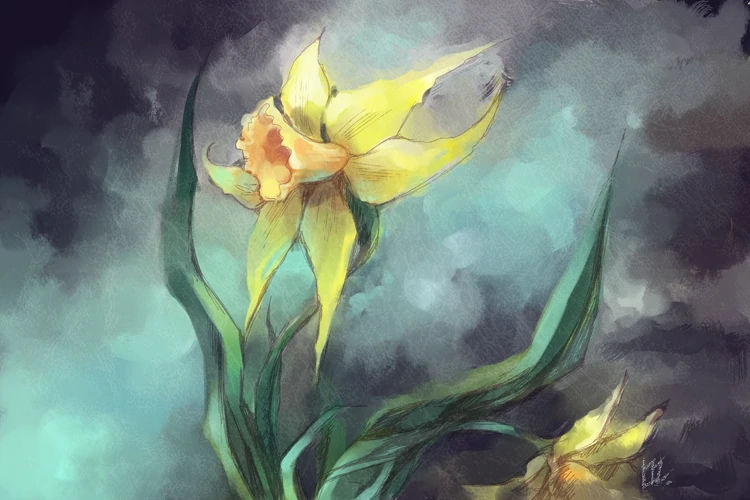The study was easy until now.
The scents in the amber colored vials were so distinct, Thomas couldn’t help but know whom they belonged to. It was whatever stayed on the sheets after they’d gone, whatever lingered. If he knew anything about these women, he knew that at least.
“By name? Do you want me to tell you by name?” he asked, stalling. Next, they were on to skin, and he was nervous about continuing.
“If that’s how you want to describe them,” the researcher said, tugging the length of her lab coat past the hemline of her skirt.
Thomas shielded his eyes from the lights and tried to look at her. The room was lit in an unfamiliar brightness, entirely without shadow. He ran his hand over the top of his hair, trying his best to hide the thinning spots. Everything in the room possessed that feeling, too exposed. It made him want to run for cover, like someone young and naked in front of another for the first time. He was better in the dark— less obvious.
“Is there a time limit?”
“Not today,” she said.
He forgot her name already, and wished it were sewn on the pocket of her lab coat, instead of the cursive letters SRC— the Sensory Research Center. He’d never heard of this company before, but wasn’t surprised that it existed—the world and its science seemed particularly susceptible to ridiculousness. He never did anything like this. He never gave blood, donated sperm, wasn’t ever part of a focus group. He didn’t like the idea of coming into money. It was too violent, brought with it too much change.
The room wasn’t what he’d anticipated. It seemed more academic than scientific, white walls, white tables, white hard plastic chairs arranged two at each table. There were privacy dividers separating certain stations, others were open. He sat at a table near the front, no chair next to him, nothing to obstruct his view or anyone else’s. He imagined more laboratory, more equipment, more bubbling Pyrex beakers, all those gurgling sounds and warning signs.
Thomas picked up one of the four vials and shook its contents, waiting for a disapproving look from her, but it never came. “What’s this research used for?”
“It’s undirected. We’re never exactly sure what we’ll find.”
Thomas was sure his girlfriend April was implicated in this somehow. Seven months earlier, he was laid off from work, and as his savings dwindled, he found it harder and harder to pay his share of the rent. When the woman called to ask him about participating, he asked the question outright. “Did April put you up to this?” Her response: “I don’t know anyone named April. Like I said, sir, your name came from a list. These opportunities are limited. It’s easy money. Painless, I promise.” Still, he was suspicious. That morning, April tried everything she could to wake him up, to make sure he wouldn’t be late. She was good at trying, letting too much light in before leaving, cracking the blinds angrily to check the weather. He was better at sleeping. She never understood.
For the second time in the last few minutes he watched the researcher acquaint herself with the small silver stud on her nostril. He touched the bend in the bridge of his own nose. There was an eight-year-old baseball game in that break, a line drive that sent him to the emergency room. April couldn’t feel it, no matter how many times he took her fingers and tried. I don’t feel anything, she would say, which to him was tantamount to suggesting it never happened.
The researcher noticed him noticing her, and turned her head toward the bank of windows at the far end of the room.
“Is it new?” He asked.
“What?” She said, still looking away.
He touched the side of his nose. “It must be new. Don’t worry, it won’t go anywhere. You’ll get used to it”
“I’m already used to it, I just….We should continue.”
There was no clock in the room, but he could tell she knew the time. Thomas wondered how long he could sit here without her giving up on him. There was always a threshold. Not wanting to discover what theirs was, yet, he went back to the work in front of him. Lettered from A-D, he opened each vial once more, inhaling the cigarette smoke in A, the lavender in B, the cinnamon vanilla soap in C, the pear lotion in D, and placed them down in order. This was the one who left. This was the one who died. This was the one who wanted me to stay. This was the one I wanted, who didn’t want me, until she did, and then I didn’t.
She recorded his answers without any indication of his accuracy. It didn’t matter. He knew. These were his last ten years. The ones he paid most attention to.
Leaning over him, the researcher collected the vials in a single hand. There was no scent he could detect on her, just the vacancy of smell. It went with the series of warnings they sent in the confirmation letter: No cologne or aftershave of any kind. For the morning of, keep fingers away from open flames or hot surfaces. Any burning could lead to inaccuracies. He wanted to do well, so he was careful. He bought unscented soap and spared his face the cooling burn of aftershave. His skin smelled innocent, new. At breakfast, the dog licked his hand for first time without the promise of food.
“There’s going to be a short rest period between each round.” The researcher said, stabbing her cheap pen at the end of a sentence she was writing.
“I want to keep going. The longer I wait, the more I’ll forget.”
“I’m sure you’ll be fine. Either way, it’s required. We don’t want to fatigue your senses.”
“They’re not tired.”
“Good. We want to keep it that way.” She continued her practiced way of looking at him without making eye contact. “I’ll be back in a moment.”
He watched her leave, taking small confident steps in modest heels, lengthening her stride as she got closer to the door at the back of the room.
Alone, he searched the walls for signs of the cameras that must have been planted to observe these unattended moments. It was a used and familiar feeling, not ever being alone. He yawned and smiled and tried to look serious and not uncomfortable waiting alone. The same request that the receptionist read to him was written on the wall in the waiting area. “Please turn off all cell phones, pagers, telepathic freeways, and other platforms of communication.”
“Telepathy?” he asked.
“If you have access,” she said.
He didn’t, but he’d dated someone who claimed to. He didn’t believe her. She insisted that she knew what the people around her were thinking. She would randomly point and say, “That man is cheating on his wife with her mother…that boy keeps sewer gators in his sink as pets and no one knows. He’s worried cause they’re getting big and taking an interest in the family cat. He doesn’t like the cat much, and is afraid he’ll be less inclined to prevent an incident.”
“I don’t believe you.”
“It’s true. It doesn’t matter. Ask them.” But by the time she confessed to knowing, those whose thoughts she described were long gone. With him, it didn’t work as well. He’d ask, “What am I thinking?” She’d say, “Not now, I’m tired, my head hurts.” It made him paranoid, her not wanting to. Not wanting him in some way, or knowing without him saying, that he didn’t love her.
The researcher walked back in, same heels, same steps, same sounds. What was her name? No combination of consonant or vowel came to mind that could help him. She carried a tray with five small Petri dishes, placed one down in front of him, and took tweezers from the pocket of her coat, opening the lid and lifting out a small pale rectangle the size of a sugar packet.
“This next exercise is in two parts,” she said. “I am going to present you with samples and I want you to identify them and place them in order of coarseness.”
“What is it?”
“This is your warm-up. Use this to acclimate yourself to the sensation.”
There was no avoiding it now. He shook slightly from the cold as he placed the rectangle in his palm. “This is kind of gross.”
“Why?”
“Maybe not gross. Maybe creepy.”
“It’s just skin.” She made a face she quickly corrected.
“Just?” Thomas raised an eyebrow in her direction. “I never liked that word, it’s so reductive.”
“Why, it’s just a word?” She peered down at him.
She wore no makeup, which, under the lights, should have made her face look washed and ethereal, but instead her features held their form. She had dark eyes, dark hair, and was now looking at him finally, but he didn’t know how to keep her there.
“I thought you weren’t suppose to say much.”
“Sometimes it gets boring standing here waiting for someone to finish.” Again, she raised the tip of one finger to her nose, tapping the stud.
He thought of something clever and tried to say it, but held himself back.
The rectangle in his hand was freckled with slight traces of hair. Thomas held the sample gingerly in his palm and surfed his index finger over it. It felt sandy, aging. He didn’t know it or know of it. It was the same with the warm up for scent. These were the most foreign, the most frightening in their strangeness. He wanted to ask if he should know them, if they, like the others, were meant to be familiar. But he lacked a full understanding of the rules and even though she said this was meant for practice, she never stopped studying him.
Wanting it as far away as possible, he placed the sample back in the dish and flicked it to signal he was ready to move on. The dish skipped to the end of the table but wouldn’t commit to falling. She saved it from the edge and placed it back on the tray.
“We’re going to change the lights before we continue.”
She walked over to a bank of switches near the door. With the first click everything went dark—with the next, red light. His eyes blinked to adjust. The exaggerated brightness was replaced by a dim tint barely light enough to see by. The colored gel of the fixtures beamed with the intensity of brake lights over all the white; the floors, the tables, the chairs, even his hands appeared dyed.
“Spooky,” Thomas said, looking at his palm. “Is this supposed to help me channel my sensory spirits? Are we going to hold hands and chant?”
“Why, do you think that would help you?” It wasn’t the same person. She was harder to see, her expressions softer or softened by the light. The stud on her nose sparkled. He could feel himself staring and not saying anything. It wasn’t the seduction that surprised him, but the romance. This must be how April wanted to be seen by him again. One more time, at least, if not forever, to have eyes as her audience in any room. It was why she threw the curtain open every morning.
“Don’t get any ideas,” Thomas said. “People know I’m here. You’ll never get away with it.”
She smiled for the first time. Clearly she wasn’t good at it or not used to it here, and her lips and cheeks, moments after they raised, fell back to their comfortable indifference.
The air in the room turned over. He shivered. “The instructions never said anything about wearing thermals.”
“The recruiter never said anything about you complaining so much.”
She was back from wherever she had gone before the lights changed. With the tweezers again she removed four samples from the dishes and placed them in front of him, each separated by an equal distance and resting along an imaginary straight line. She pointed to the ceiling. “Those are masking lights. They will help you concentrate only on the texture.”
He felt anxious again, losing control.
Was any of this worth a hundred dollars?
Thomas picked up the first one. It slid out of his hand and back to the table. There were better ways to begin. Impatient, he grabbed at the sample in frustration, and again it drifted away. He picked up the tweezers and gently lifted the sample to his outstretched palm, then slowly closed his hand halfway round. Its slick surface needed, he knew, room to breathe. It could only belong to Olivia, the one who left. Her body was the most resistant to being held, no matter the amount of tension or friction applied to any embrace. He always thought it a condition of her skin, the result of all the oils and soaps and lotions she applied. Then it seemed an excess, but now he understood how it helped her escape, how she could slide away from him the way she did, late at night, slipping out from under his arm, without waking him. He put her down again and knew he wouldn’t have to go back a second time. He spent enough time missing her. By now, he knew better than to forget so quickly how she felt.
The next one was easier to manage, but harder to place. It felt polished and warm, something born under so much sun. For a second or two he just sat holding it in his palm, allowing it to blaze parts of him still raw and cold and woken too early. That’s what he knew of Linda, how her body forever felt like sex. Nights moving toward her, winters most of all, her body held that slow-burning beginning. Too much to bear for extended periods of time, inevitably they’d end up separated during the night, him sleeping in far corners away from her, completely uncovered, trying to moderate his body back to cooler temperatures. She was the telepath, the one who said she knew, without him saying, when he was going to leave.
None of this could be April’s doing—he knew that now. She worked too hard to keep him present, with her. Knowing anything about what came before meant knowing too much. Someone died, someone left, someone he left; none of it mattered. Infidelity was in the details. The fourth sample in the row was hers without question. The rectangle felt more muscle than flesh. That taut athleticism, how she drill-sergeanted every atom in her body to a state of constant motion. There was no give to it. None. No matter how hard he pressed into it, or pressed up against it.
He shuffled the samples around, still avoiding the third one, which he banished far off to the right. Coarseness, what did she mean? None of it made sense. These weren’t grades of sandpaper, were they? He rearranged the order: Olivia before April, April before Linda. It felt right that way. The last could go anywhere in the line. It held the most history.
“Can I have some water?” Thomas asked.
The researcher raised an eyebrow, but nodded and walked back out of the room. Thomas liked watching her walk away, if only because he knew she’d return. These days, whenever April left a room, he was never sure if she’d walk back in. There was not much more he could do to hide, and he knew that a particular transparency was setting in: he could no longer convince her that what they wanted was the same. After she had found him, sad and grieving for Serena, he was a poor investment and said so all along. It was the type of honesty he hoped would be ignored for the duration, only to be invoked later as evidence in his defense. I told you…I said I wasn’t capable of more.
Alone again, he did his best not to look down. Thomas didn’t need to touch the one that remained—the one the red lights couldn’t hide—to know. He had already seen traces of Serena’s tattoo—that butterfly, a blooming, blossoming thing, spreading out across the small of her back. How many times had he laid his head there? How often after sex did he trace its outline with his lips? He was afraid to know it again, the sensation of being close to her. The memory was ghost enough. He poked at it with a single finger, the way he did when he thought she was asleep, only asleep. There was no response from the sample, no waking.
“We started over several times with that one,” the researcher said, walking back in, “but every time we grew the culture, it appeared.” She placed a small paper cup with an inch or two of water in it down next to him. She smiled as though having brought a bucket.
“I guess the lights don’t mask everything.”
“I told them we should have blindfolded you, but there were some who thought it crossed a line.”
“I think I would have known anyway,” Thomas said.
“I can’t say.”
“Is this meant to be cruel?” His skin felt flush, crawling away from him.
“It’s just research. Nothing more than knowing more,” she said, relaxing her pose, holding her pad down in front of her.
“Were they very willing?”
“I wouldn’t say they were unwilling.”
He held it in his hand. It was all he could do. This was a dream, wasn’t it? He was still home sleeping. He’d had this dream before. Three years of them. Serena gone. In the best dreams, they were merely separated and he searched but never found her. The worst was her body beside him the night before the aneurysm, that small detonation in the mind, with no cause or reason he could understand.
Any morning could be that morning.
He shuffled the order again, placing Serena’s sample at the end of the row and then moving it to the beginning. He couldn’t decide and didn’t want to. Placing it anywhere was too public an admission of his anger or his affection. The middle was a lie and probably wrong, but safest and less damaging. He slid it in after Olivia, before Linda, pushing April to the end.
“In order of coarseness,” Thomas said, pushing all four forward with the force of a large bluffing bet. He took a shallow sip from the cup, saving whatever he could for later. She collected the samples on a tray and headed once more for the door at the back of the room. The lights stayed red.
Thomas got up and looked around for the cameras again. He walked toward the door he had entered, trying to stretch out a stiffness that settled into his joints. The blinds were pulled tight, no sunlight, no distractions. He started to flip switches on the wall. The gels went from green to yellow to blue, dizzying strobes of primary colors, before finding their way back to the blinding, lurid, white.
The researcher returned, pushing a cart loaded with five large red boxes. “Patience is a virtue,” she said.
“I always thought patience with virtues was a virtue.”
She smiled again. “You shouldn’t touch something without knowing how it works.”
“The red was hurting my eyes…it was fatiguing my senses.” As evidence, Thomas rubbed his eyes.
“We’re almost through. This is the last one.” She placed the boxes across a long table.
“And then what?”
“You’ll go outside, get paid, and then you’ll be free to do whatever it is that you do.” She held her smile longer this time.
Thomas walked closer to her. She stood on one side of the table, he on the other. They were nearly the same height, though he held an inch or two in his favor. Still, he felt lacking in leverage. He could never tell how he’d stand next to someone, how his body might occupy space next to theirs. There was more trouble in her eyes than he saw sitting down. Insomniac symptoms creased deep into skin.
“For this part, you’ll place your hands through the flap and identify what’s inside the box.”
“They have things like these in children’s museums, don’t they?”
“Do they? I don’t remember.” She picked up the very last box and brought it to the end of the table. “Use this as your warm-up.”
“This is the part I don’t like.”
“You’ll survive,” she said.
“Why do people say that? Of course I will. That’s just so beside the point.”
“Just?” she said, without smiling. Her fingers went back to the stud in her nose. “I’m sorry. That wasn’t necessary.” She looked up. They were standing eye to eye, directly across from one another. She took one step to her left.
Thomas placed his left hand on top of the box, took a breath, and pushed his right hand through the black fabric. First there was nothing, a grab at air. He reached farther in until he felt the tip of something smooth and cold, vaguely ceramic. He spread out his fingers and detected the plaster cast of thin lips closed together. A mannequin head, perhaps? But it lacked the perfection, the symmetry of something manufactured. Blind, he moved his hand upward, pressing nostrils and nose, eyes and forehead. Thomas’s hand held the face. It seemed unnatural. Would someone let you linger this long without pulling away? People weren’t still, not ever.
No matter how hard he tried, the warm-ups were equations he could not solve. He began to move his hand down and out. Skiing his index and middle finger straight down the bridge of the nose, sensing how it sloped to the left, slightly to the left. A childhood break long healed. An eight-year old backyard baseball game. What Serena discovered without prompting, what April could never feel, no matter how detailed the direction or the map.
Feeling sick, electrocuted, he retracted his hand from the box.
“I don’t understand,” Thomas said, touching his nose. “Have they all been—”
He wanted to put his hand back in, but couldn’t bring himself to do it. How could nothing before feel familiar? For the first time he wondered how—how it happened? Was it those comatose nights? Asleep, searching for Serena, nothing could wake him. It would have been easy to steal a little skin. His understanding of modern science was limited, but he knew they could do a lot with a little. A pinprick, a cotton swab, a drop of saliva. He wouldn’t have felt anything.
The researcher said nothing. She looked at him curiously.
Thomas eyed the other four boxes. “Is it okay to stop here?”
“We’re almost done.” She said.
“What if I don’t want to go on?”
She moved out from behind the table.
“Well, all of your time would have been wasted. We won’t be able to use any of your data and you won’t get paid.”
“Why?”
“Because the study is incomplete. We’d have to treat it like you weren’t here.”
The researcher stood with her hands at her side. She bent her head down, raised her eyebrow. Her lips tightened together. Her disappointment was hypnotic.
“What’s it going to be?” she asked, patience draining from her face. “These boxes are all that’s left.”
“That’s what I’m afraid of.”
“Then you should go,” she said.
He started toward the door, but couldn’t seem to move.
She carefully placed four of the boxes on the cart, in order, one at a time. She rolled the cart toward the door, leaving the warm-up behind.
There was a goodbye in it all over again, watching them go.
“Wait,” Thomas said. “Please.”
With her back facing him, she said, “Look, we have other work to get ready for.”
“I thought you said there was no time limit.”
“Within reason, but if you’re not going to finish…”
“Will you do something for me?”
She turned around. Her face held a particular surprise. Maybe it was the question, the idea that there was anything he could ask that she would be willing to do.
“If you do this, I’ll finish.”
“What?”
He moved back toward the box. “It will be painless, I promise.”
He held his hand out toward hers.
“Unlikely.” She stepped next to him.
He took her right hand and gently guided it through the fabric. Her arm tensed to a stop, and then relaxed into the opening. He led her toward the bridge of the nose. Her fingers trembled slightly, waiting to come to rest.
“Do you feel that?” He whispered.
“What?”
He took her left hand and brought two fingers to the bridge of his own nose. He moved her right hand in the box, and then her left outside.
“Do you feel that?”
She twisted her hand, wanting to separate, but he kept her there.
There was nothing. No recognition. Drawing away, she pulled her fingers down his face with pressure. And then she stopped. A small detonation. A smile. Lips and cheeks raised slightly before correcting back to their familiar flat line. She put the boxes back onto the table.
Together they went back to work.
